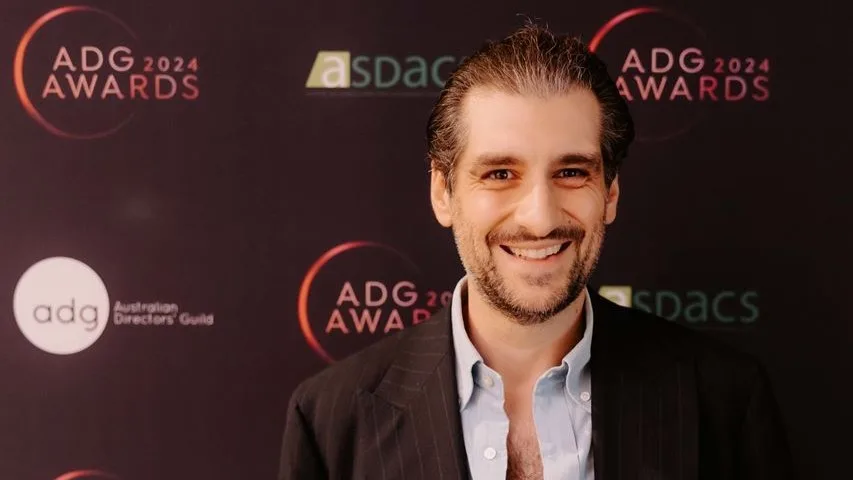By Ilias Karagiannis
With his short film Gorgo winning ‘Best Direction in a Student Film’ Award from the Australian Directors’ Guild (ADG) and vying for recognition at the AACTA Awards — Australia’s most prestigious film awards — Greek Australian director Veniamin Gialouris is proving himself to be a rising force in global cinema.
His film, a gripping reimagining of the myth of Medusa, is set in the 1960s, where a Greek bride arrives in Australia for an arranged marriage, only to uncover a dark secret.
For Gialouris, Gorgo is not just a story about the pain and power of migration, but also a tribute to the sacrifices and traumas of previous generations. With meticulous production design, emotionally rich storytelling, and an authentic soundscape featuring ancient flutes, the director honours his Greek roots while exploring universal themes such as power, loss, and transformation.

In an exclusive interview with The Greek Herald, Gialouris discusses the importance of his cultural heritage, the challenge of storytelling across two worlds — Australia and Greece — and his ambitious plans for the future, including his dream of creating his first feature-length film.
First, of all, congratulations on winning the ADG award for Gorgo! What inspired you to adapt the Medusa myth into a story about a Greek bride in the 1960s traveling to Australia?
Thank you so much. Being recognised by your peers is really meaningful, especially when the work is as personal as Gorgo is. The genesis of the idea came from my writer, Danielle Stamoulos, who approached me during our first year at the Australian Film Television and Radio School (AFTRS). I was already conscious of the various Medusa myths—particularly Ovid’s—and we connected over our yiayiades’ stories, so collaborating on modernising the myth became a really exciting prospect.
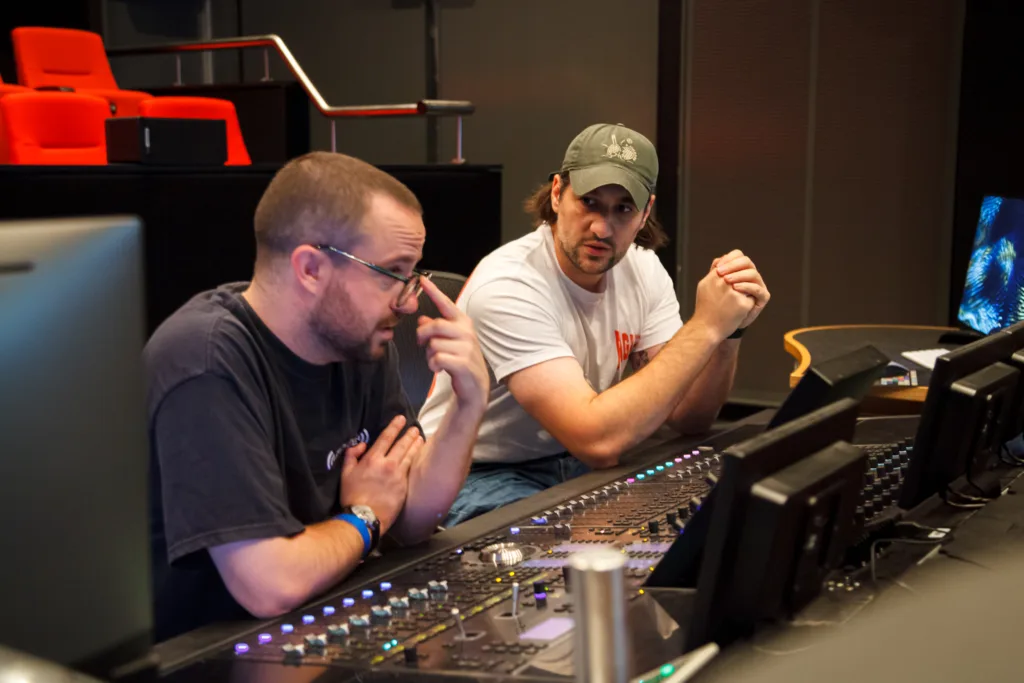
The themes of migration, sisterhood, and secrecy resonate strongly in Gorgo. How do you feel these themes connect to the Greek Australian experience of that era?
Drawing a parallel between Ovid’s Medusa myth, and the stories of arranged brides coming to Australia, was sadly quite easy. I guess the myth has always been so relevant because those problems still exist and are so universal. With that said, I do think my generation is largely shielded from how difficult—and harrowing—the experience of migration to Australia was, involving immense loss, deep trauma, but also a profound sense of hope. My grandparents definitely could not have pursued the arts and I have them (and my parents) to thank for making the sacrifices that allowed me to follow my dream today.
The process of researching the film was deep; it involved a lot of personal research through my own family, and a lot of discussions with Greek community groups and academics. The Greek community of Sydney really responded to the project. We couldn’t have made it without the on-going consultation and support of the Hellenic Lyceum of Sydney—particularly Dimitra Micos and Liana Vertzayias. The number of people they brought onto the project to support and assist really illustrated the strength of sisterhood that still exists today amongst Greek Australian women of all generations.
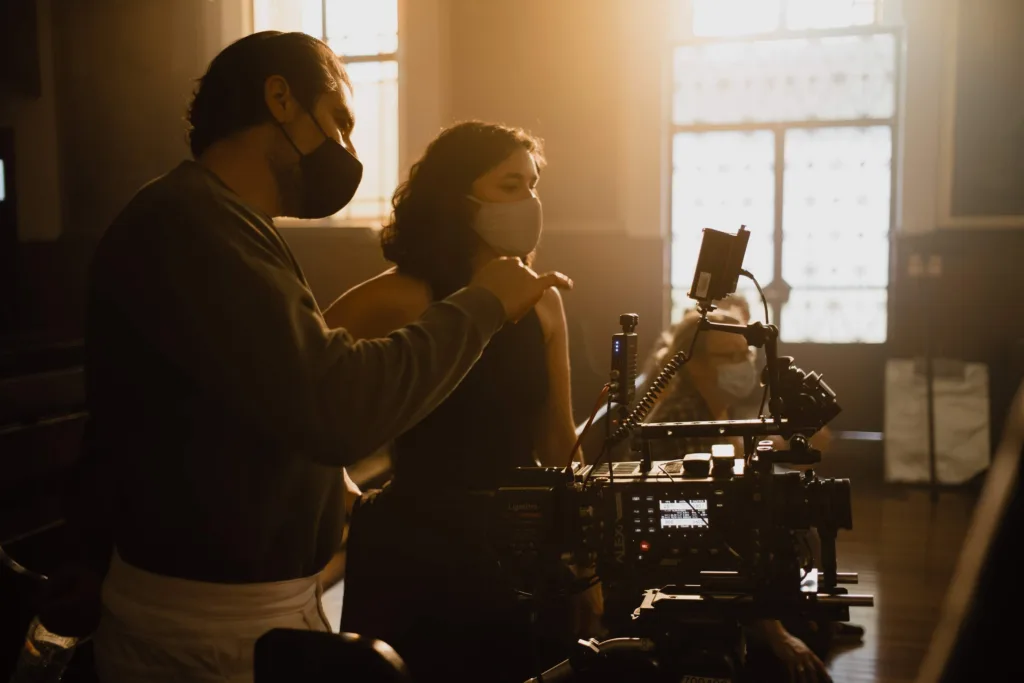
The 1960s was a transformative decade for Greek migrants in Australia. How did you approach portraying the cultural and emotional complexities of that time in your film?
My team and I really had to create a world—not something particularly easy to do when you’re making a short film on a budget. I was really lucky to find an older Greek-Cypriot woman’s house; she’d just moved out and my understanding is that she hadn’t renovated the house since the fifties. So it had this beautiful wallpaper, incredible kitchen, and everything was accurate to her (and so the world of our film). We also raided my family’s personal archives; particularly for photographs—one of the key photos in the film is of my actual yiayia and her sisters.
Navigating the cultural complexities was definitely helped by our cultural consultants but also by my experiences, as well as those of the cast and crew. I’m really proud of the interpersonal dynamics we got going between the characters and how truthful they feel. When a primarily Greek Australian audience watches the film, I always know when they’re going to laugh or gasp compared to a more general audience and it’s because they get it on a deeper level.
Gorgo was shot in a relatively austere style; often scenes play out in single shots, with a lot left unsaid. Usually music can do a lot of the emotional heavy lifting, but I also wanted the film’s score to be in a single ancient instrument called the aulos. My composer tracked down one of the handful of aulos players in the world and collaborated with them to create the most beautiful and haunting music. As far as we know it’s the first time that instrument has specifically had a film score written for it.
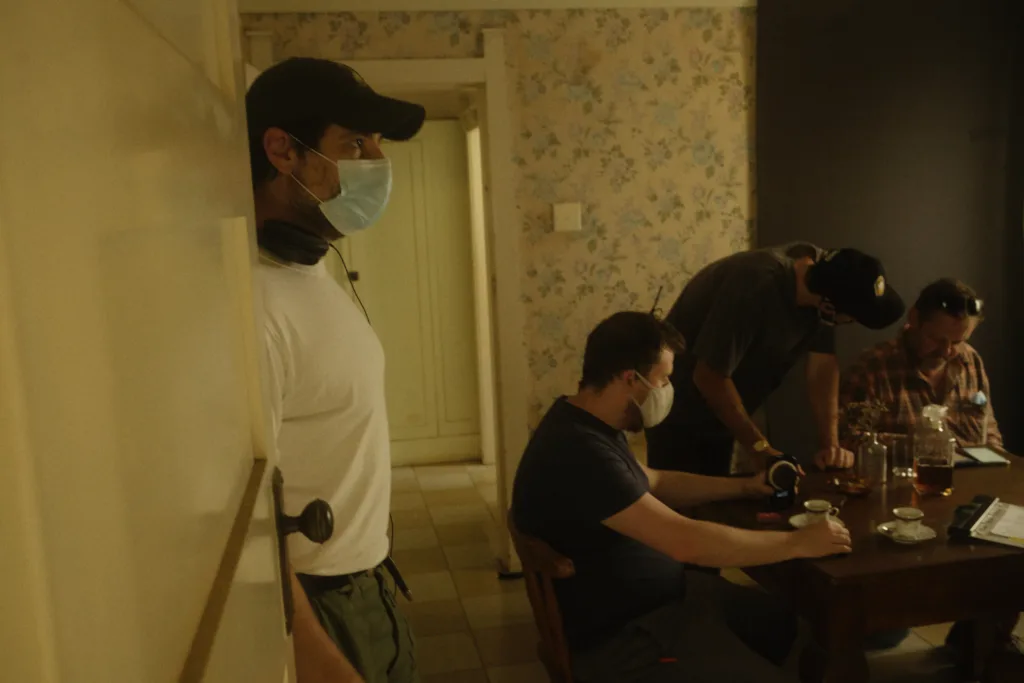
Winning ‘Best Direction of a Student Film’ is a significant milestone. How has this recognition impacted your career and your future projects?
It’s actually only been a week since the win so I’m really not sure what impact it’s going to have. But it’s definitely very personally significant, especially with the AACTA nomination coming only a few days later. And the Director’s Guild Award is something that’s awarded to you by your peers; that is really meaningful and feels wonderful.
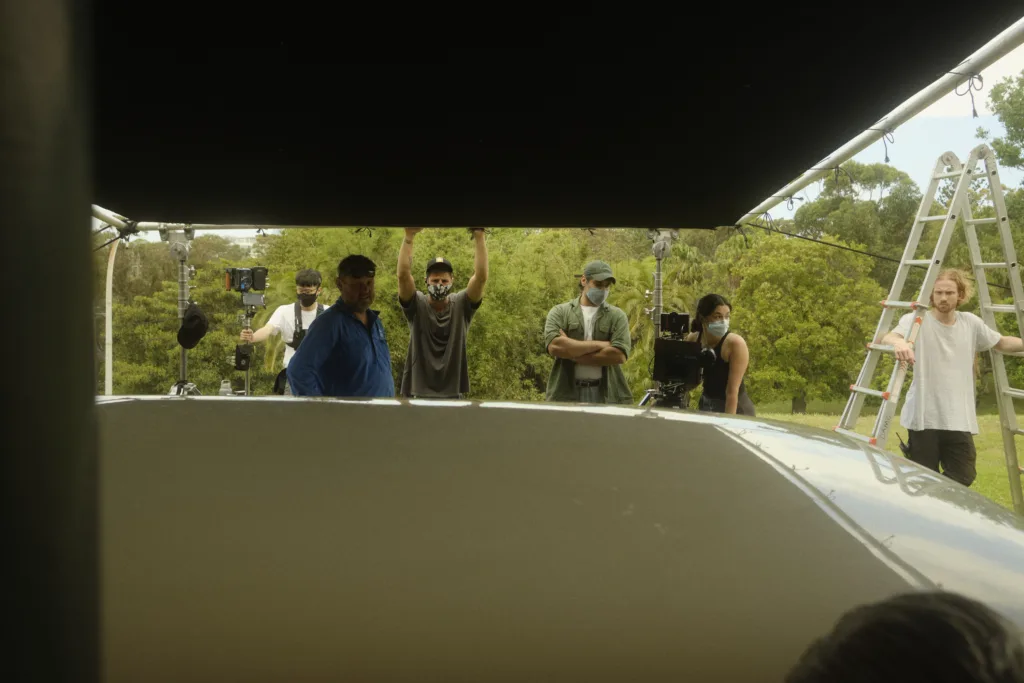
I’ve read that you split your time between Sydney and Athens. How do these two cultural environments influence your storytelling and your perspective as a filmmaker?
I’d already made Gorgo before I moved to Athens for part of 2023. It really got under my skin. I intended on being there again this year but I ended up shooting a couple of projects and I couldn’t get back, but I’ve already booked my tickets to go back in early 2025. I think I had more creative output in Athens than I’ve ever had before or since.
It goes without saying that Australia and Greece are so different. I love Australia and Australian cinema, but there is something about being in Europe—it’s so easy to travel, and there is so much cultural exchange. Greeks are so generous, but also really brave and are unafraid to let you know exactly what they think. And as I started to become more familiar with modern Greek artists and creatives (like Cavafy and Fassianos), I can feel them starting to seep into my work and the way I see things, too. I feel very lucky to be able to dip my feet in both worlds.
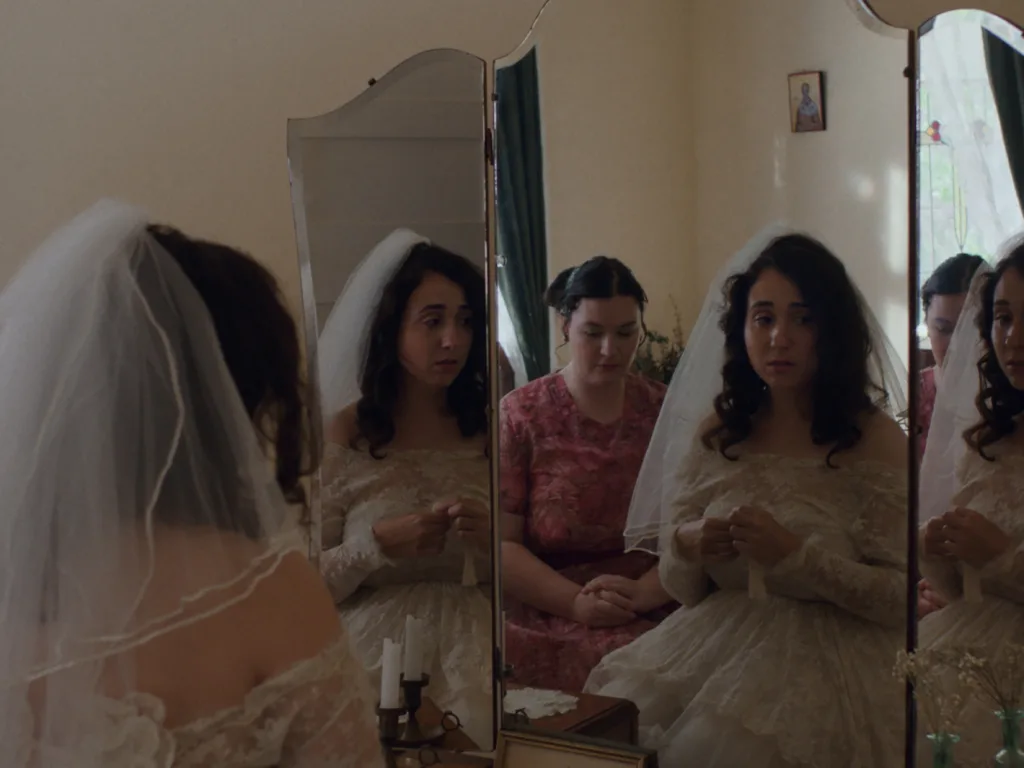
Your Greek Australian heritage must hold a unique place in your identity. How has growing up with this dual cultural background shaped your perspective as a storyteller?
My Greek Australian heritage is such an intrinsic part of me that it’s hard to separate it from my perspective as a storyteller. Growing up, it felt completely normal to have this dual identity, but as I got older, I realised how much it shaped my view of the world. Being part of two cultures allows you to see things from multiple perspectives—you’re constantly balancing different traditions, values, and histories, which creates a natural curiosity about identity and belonging. As a storyteller, this duality often leads me to explore themes of in-betweenness: migration, isolation, and displacement, whether in a physical space or within a character.

Do you find that your Greek heritage influences the types of stories you are drawn to, or how you choose to portray characters and themes in your films?
Absolutely. I’ve always been really interested in history and myth—I would’ve been eight or so the first time that I read an illustrated version of the Iliad. And I tried to write my first screenplay at 11, and it was about the Gates of Thermopylae. So it’s just an intrinsic thing and it’s hard to really grasp where it starts. But I was always writing and trying to tell stories, and I was obviously really inspired by what I was reading.
Greek myths, in particular, are such a great framework for exploring universal themes like power, loss, and transformation. But I also want to push beyond the mythic and delve into the deeply personal and human side of these stories. My aim is to show characters who feel real, who carry the weight of their history but also live in the moment—laughing, struggling, and finding connection in unexpected ways. It’s important to me that I honour both the beauty and the flaws in these stories because that’s where the truth lies.
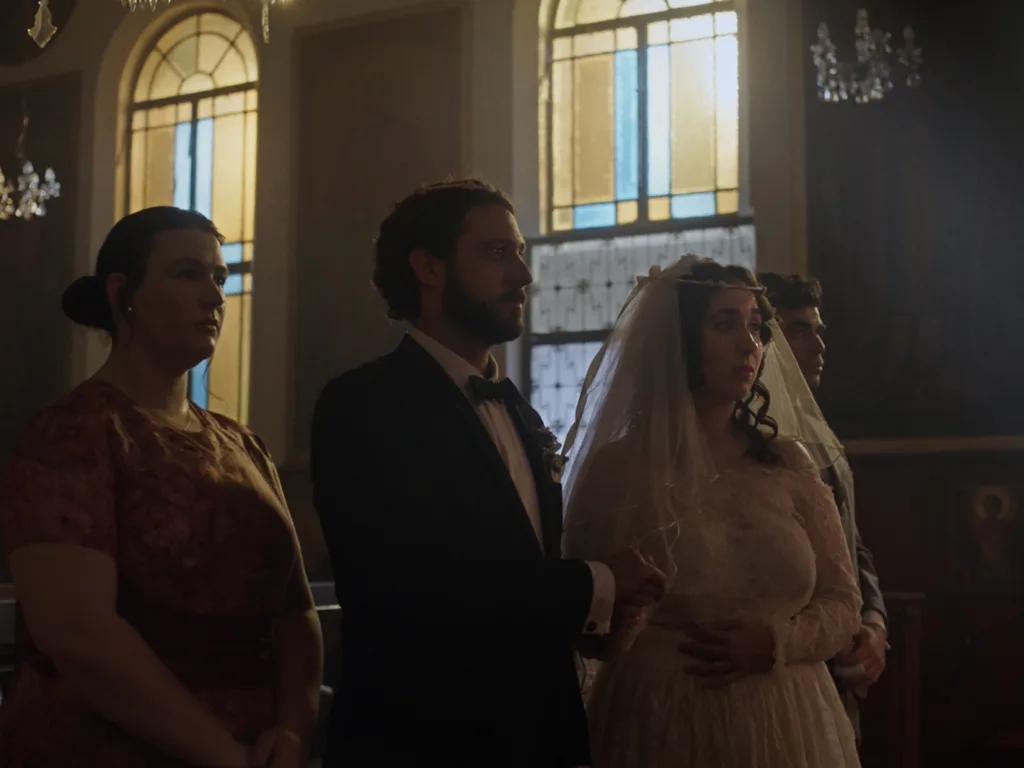
Can you tell us a bit about your personal journey? Where were you born and raised, and how has your upbringing influenced who you are today? Do you speak Greek, and how has your connection to the Greek language and culture played a role in your life?
I was born and raised in Sydney, Australia. Unfortunately, I didn’t grow up speaking Greek and that is absolutely my fault—my parents tried and I refused. So I’m now slogging away as an adult trying to get better at Greek (but I’m still awful at it, also not my teacher’s fault, they try too).
That said, my heritage plays a huge role in my identity. I have a big extended family, and food and culture and growing up Orthodox is all profoundly affecting. Even having the name Veniamin, everyone knows you’re from somewhere and you can’t escape it—not that you’d want to. I’m really proud of it.
I think the most confronting thing was spending an extended period of time in Athens and becoming hyper aware that you’re not just Australian and you’re not really Greek, but a kind of third thing. And I like being whatever that is, and I think it gives me an interesting perspective of both Australianess and Greekness.

Lastly, what’s next for you? Can you share any details about upcoming projects or the journey you see yourself taking in the film industry?
Well, I’ve wrapped production on two short-form projects this year; one is about to be finished and the other we’ve just started editing. But after those, I’d love to make a feature. Getting a film financed is a really hard and arduous process but I’m hoping with the recognition from the Director’s Guild Awards and other accolades, it might just happen. Either way, I’m excited to keep making work that I care about.
You can vote for Veniamin in the AACTA Awards here.
